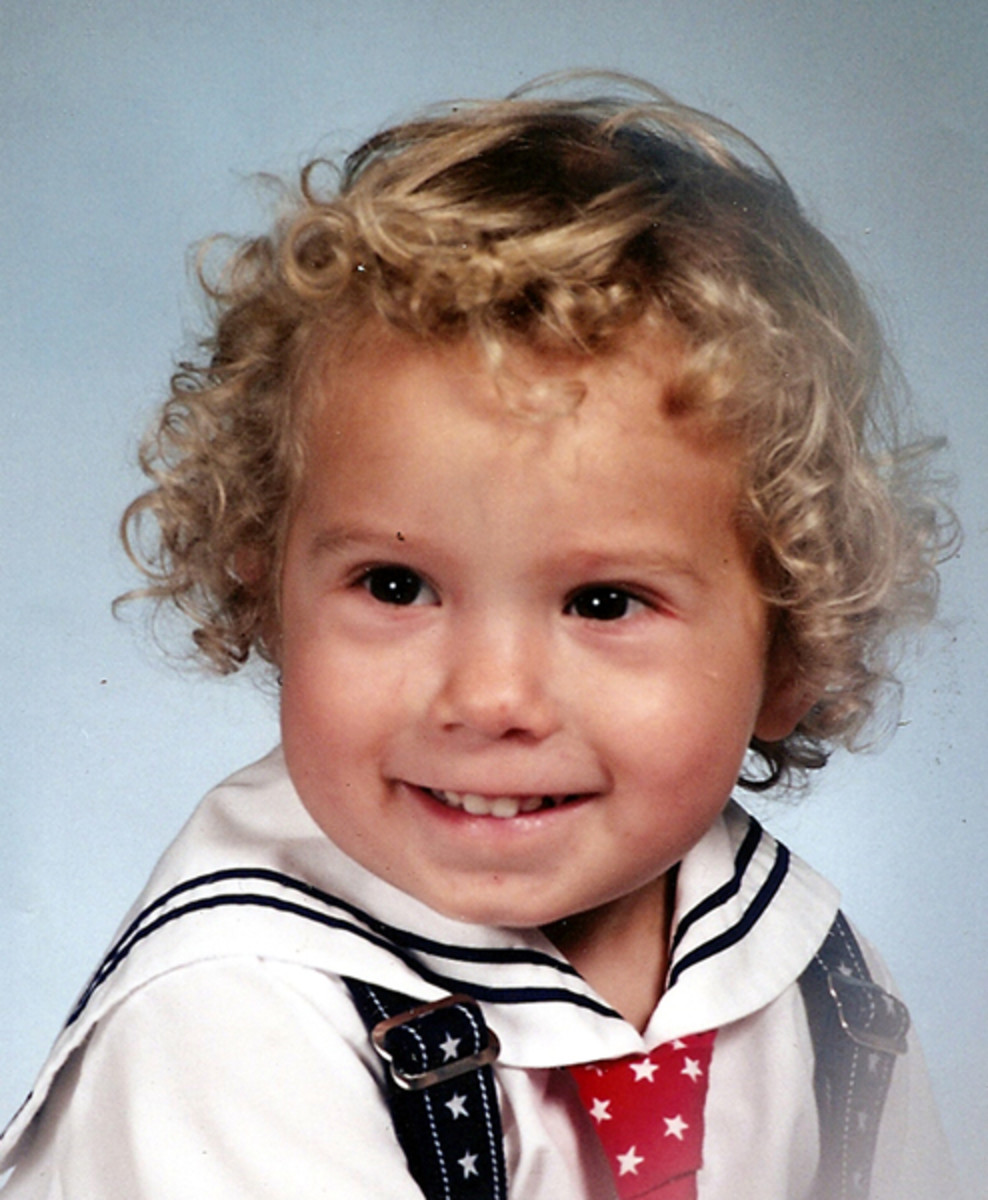- HubPages»
- Family and Parenting»
- Parenting Skills, Styles & Advice»
- Parenting Advice & Tips
May Sibling Rivalry Newspaper (Part 1) edited 2017
Woman With Speech Bubble

On Negotiating Anything
Beverly Berner, president of a resource development group in her area and coaches women says about impulsiveness “When you see somebody being really emotional and stamping their feet, they're letting the kid take over. Or, if you see someone trying to scold and sort of shame you, then you're trying to act like a parent. You need to act like an adult, and deal with the facts. It makes it a whole lot easier to make things happen. The Girls Guide To Power & Success. You Can Negotiate Anything (pg. 97).
What's Really Wrong With My Child? Could It Be Poor Self-Control?
When a child who worries much about taking care of self while going to school, and also taking care of their siblings, in the past parenting years, it was okay. Why, because of the increase of single-parents and working more than one job. Even when a child had to do the housework and discipline younger siblings, in some instances, considered normal. Naturally, it was okay as long as the child could be a responsible mediator and shy away from being impulsive.
Impulsiveness vs self-control, is there a difference? Girls and boys are impulsive for material things- clothes, fashion, games, make-up, and eventually relationships with their peers. Being impulsive is a testimony to being e.g. moody or anxious; and impulsiveness in cases where these needs are not met could develop into a disorder that leads to poor self-control. Poor self-control simple means that there is a problem with controlling our emotions. One solution to poor self-control is to initiate behavior inhibition which helps to curb our thought process before we respond to our mixed emotions. What is behavior inhibition? Behavior inhibition is the sense of thinking about our responses before responding.
The environment and our surroundings help to determine what to respond to and how to respond. A delayed response gives the child plenty of time to make the decision that is pleasing. If the child uses rule-governed behavior, the parent's initial teaching is followed and children are more positive. But if the child is impulsive, that control may not be there to control their impulse before speaking even if the parents are looking out for the child's best interests. Parents worry when their children seem to lack self-control. It often reflects on their teachings and upbringing.
Anyone who has been diagnosed as a worrier can understand the problem of self-control because its like having a desire to do one thing and by the time its in completion, the person has began several other projects. Or, the task gets put on hold.
In order to combat this problem and the intention to control their impulsiveness, a symptom that is similar to pulling-out the hair syndrome for a frustrated parent, one must have a plan. When inhibitions of poor self-control start to invade the child's will, a plan to nourish their underdevelopment is like nipping it in the bud.
The concerned person, whether a breadwinner or an adolescent whose having difficulty adjusting to the norm in any one of a number of households, wants whats best for all. Communication is key to opening doors because it's to revive past feelings, to find out what's bothering the other siblings. A child who acts impulsively causes disruption in the family. He is not listening, tuning in, or thinking. That tells us the other siblings are more capable of making the best decisions. This child refuses to believe someone else knows what's best for others in order to accomplish goals.
Desperate Teenage Boy Stock Photo

Why Do Some Children Have These Inhibitions & Why Are They Stronger Than Others?
Dr. Jacob Bronowski from his book analysis The Ascent Of Man sums up the behavior patterns that determine ADHD in children/adolescents or problem adult behavior inhibitions.
Even though the problem enlist ways that seem to bother adolescents due to past experiences and how they dealt with behavior inhibition, e.g. talking out loud, or misbehaving, it does not get to the root of the problem. Other children who seem to have a mature mind in perspective taking and value their beliefs in many things, outnumber ADHD adolescents, and know what it means to internalize before responding to parents or teachers. Internalizing our thoughts and emotions help to offset the deficit for troubling circumstances.
What Is So Important About Past Events?
Internalizing past events helps one think about the combination of past and present events and how to materialize a way in which to avoid mistakes the next time. This internalization is a part of our personal history and what is essential is that it helps determine how to sum up our situations for a better outcome depending on how it relates to the present and how it will benefit the parties involved in the future.
Bad Hair Day For Frustrated Lady Stock Photo

What Problem That Is Associated With The Term Hyperactivity-
I came across a narrative about morals. “Morals exhort certain kinds of behaviors, ethics reflect upon those morals and categorizes them into systems. What's prescribed and proscribed is therefore ethics that is a critical reflection on the prescribed and proscribed; the allowed and the forbidden; the urged and the discourage. This was taken from Then the whisper put on flesh: New Testament ethics in an African American context. by Brian K. Blount. 2001. (17).
In the past, I associated that statement such as: anything beyond today is stretching the imagination. I came up with moral reasoning that stated-"I can't talk about it right now. I can't seem to forgive you right now. I won't do it ever again. I won't give it another thought."
ADHD adolescent/young adults know its much easier to overreact to something that is disagreeable with them when they have already had this problem in the past. They respond much too fast, not really learning the truth of the matter because of simplified mathematical inhibitions of the past and present. These children have to consider not only what has transpired in time, but what possibly might happen due to their response.
In a lighter matter, what one does not know will not hurt them. The problem with the disorder of children with ADHD is once they come to terms with the present and future underpinnings, these children are prone to be sensitized to any problem (with behavior inhibition) that develop later in their life. They have a sixth sense that the other person expects unnecessary risks to occur and have to act accordingly to prevent happenings that cause a deficit that they may not be prepared to handle by themselves.
Possibilities To Take To Reduce The Problems Of ADHD-
The problem with ADHD in children/adults can have serious consequences because of the loss of self-esteem due to unfilled aspirations and goal setting. ADHD disorders diminishes the reality of living a normal life; it is very frustrating to reach the advantages of middle-class reputation. Persons who deal with ADHD adolescents on a daily basis, find these individuals experience feelings of being deprived of normalcy and the perspective that they lack responsible behavior at times.
Having ADHD is not a curse, there are ways to combat this disorder. Instead of coping with the statement of lack of control, try another approach. If persons are prone to label certain behaviors as unacceptable and wrong, e.g. activities that require cooperation and sharing and this child refuses to cooperate, try to reach a tolerance level of improvement. Anticipating a change in behavior more conducive to normal activities, and reducing the fear of neurological hurt and pain, these individuals can reach a level of maturity they need to function in today's society. No more irresponsible, non-caring participants, and more of a participant who feels comfortable in their own skin, acting morally with society's view of what is acceptable at any age and time. Attention is a go-getter; children need that reassurance of being acceptable. Failure is not the option at this stage of development. Looking forward to success with parents and other authority persons can bring about a peaceful and patient understanding with an adolescent/young adult sacrificing to achieve better results in financial as well as family matters.
On the other hand, if that individual is stranded on the notion of a good time, however demoralizing the outcome is of inhibiting behavior, that individual will grow up and has to come to terms with excessive behavior.
Excessive behavior can lead to drinking, drugs, or sexual relationships when in reality they are not mature enough to receive. They have been identified with reckless behavior. The problem needs psychological treatment and behavior modification, to having a closer relationship with a higher supreme being.
On Being a Mentor
ON BEING A MENTOR
Things to look for in a mentoring relationship- expectations, cautious of time, and same values and beliefs. Will push you to make things happen-hard work and perseverance. A Girls Guide To Power And Success. Mentors Can Turbocharge Your Success/Journals And Reads St Louis Business Journal, Fortune Magazine (119).
On Patricia Ireland of The National Organization For Women
We need a woman's voice- Questions asked that concerns public-policy making? “Women do bring private concerns to the public arena. How do the children and the elderly get taken care of, how can work and family get dealt with; the whole business of equity? What can we bring to the table? Step up and be counted- about issues one is passionate about and going to your legislators.”
On Hardy Personality
Feel a deep commitment to the activities of their lives.
Possess an adaptive cognitive appraisal process that helps then anticipate and internalize the changes they face.
Caregivers exposed them to age-appropriate frustration and encouraged them in their childhood activities, thereby helping them to acquire a sense of control over their environment and to develop a positive sense of self-esteem. Struggling With The Demon: Perspectives On Individual & Organizational Irrationality. Hardiness & Locus of Control. By Manfred F.R. Kels de Vries. (pg. 239).








